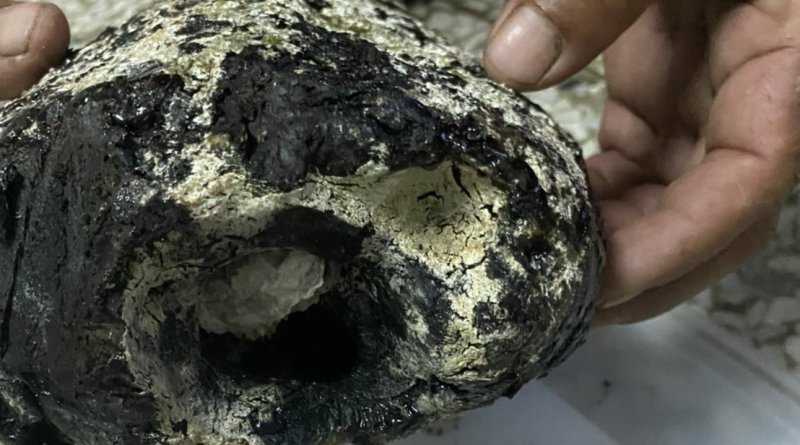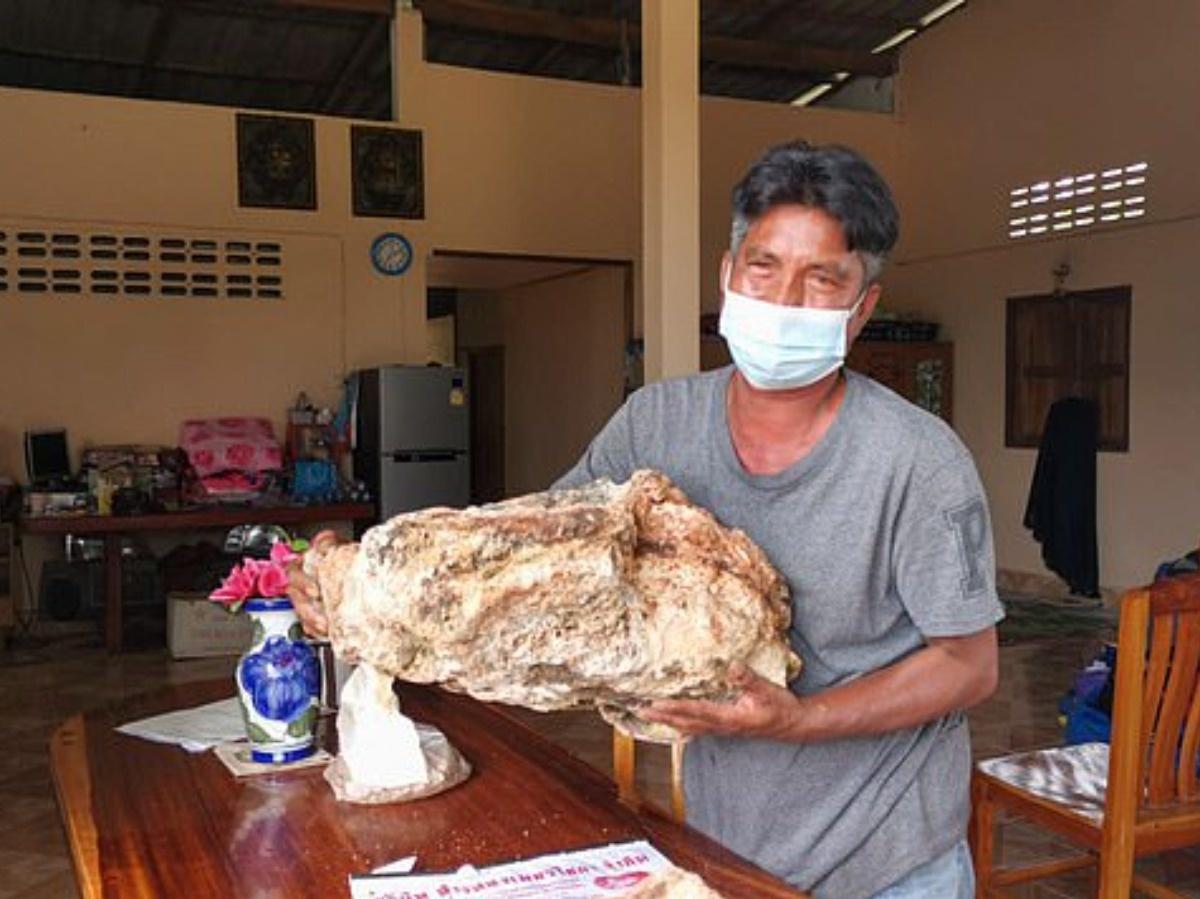What Is Whale Vomit? Terengganu Woman Finds 5KG Of This 'Floating Gold' While Fishing
It is said the substance can be sold for up to USD40,000 (RM170,000) per kilogramme.
A woman in Marang, Terengganu recently made headlines for her luck at finding a piece of whale vomit floating on the coast
Berita Harian reported that 41-year-old Aida Zurina Long was fishing at the jetty near the Malaysian Fisheries Development Authority building when she spotted a strange object floating in the water.
She initially thought it was trash. However, her father, who is also a fisherman, told her that the waxy, floating lump could be whale vomit.
"Dad tried burning the object and it melted like a candle and gave out a sweet smell," she told reporters when met at her home on Tuesday, 14 December.
Aida Zurina added that she had never heard of whale vomit and was surprised when finding out about its high value on the Internet. She said she was ready to cooperate with any authority who can confirm the authenticity and quality of the 5kg object she found.
According to Bernama, a sample of the chunk has since been sent to Universiti Malaysia Terengganu to determine if the substance truly is ambergris, as whale vomit is formally known, and if Aida Zurina has become an overnight millionaire.
So, what is whale vomit and why is it so valuable?
According to The Conversation, the reason why ambergris is so highly prized is because of its rare origin.
Ambergris is a product that can only be made in the digestive tract of sperm whales, an endangered species.
As squid is the main diet of sperm whales, their bile ducts have been adapted to produce a compound called ambrein to ease the passage of hard, sharp squid beaks that they usually consume.
The digested product, once expelled — either as faecal matter or by regurgitating, hence the name — floats in the ocean and slowly loses its water-soluble faecal material over time. What's left behind is the solid, waxy substance called ambergris.
Perfume makers highly value ambergris as it allows scents to last longer. When heated up, ambergris releases a rancid, foul smell that slowly turns sweet.
With months to years of degradation and oxidation in the ocean, it is said the longer ambergris floats at sea, the sweeter and more oceanic is its aroma.
Most recently, a fisherman from Thailand made international headlines after finding a whopping 30kg lump of ambergris
Fisherman Narong Phetcharaj from southern Thailand's Surat Thani province found the strange mass on a beach on 27 September and became an instant millionaire.
According to South China Morning Post, the substance, often dubbed "floating gold", can be sold for up to USD40,000 (RM170,000) per kilogramme.
It was estimated that Narong's piece, certified by experts as genuine ambergris, is worth over USD1 million (RM4.2 million).
At the time, Narong said if he could get a good price, he would sell the whole thing and retire.
While excitement is high for Aida Zurina's find, a Universiti Malaysia Terengganu expert has advised people not to get ahead of themselves
According to Bernama, the university's Centre of Research Field Service director Associate Professor Dr Hasrizal Shaari said in line with its high price, ambergris needs to achieve a specific purity to be considered of high value.
The sample they received will need to contain three active elements of different ratios in it, namely ambrein, epicoprosterol, and coprostanone.
"Without the three active components, the lumps do not have any value," he said, adding that no Malaysian has yet to become rich after discovering ambergris in the country's waters.
To date, the lab — the only one in Malaysia with expertise to verify and test ambergris — has conducted analyses for only 18 samples previously believed to be the substance.


